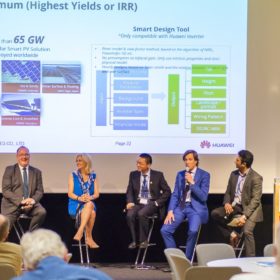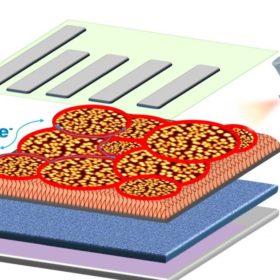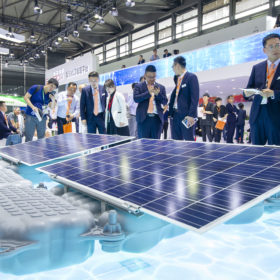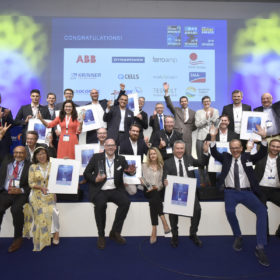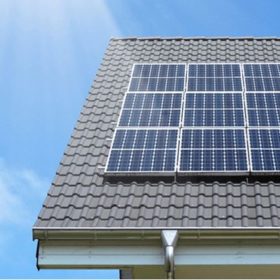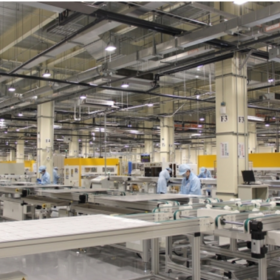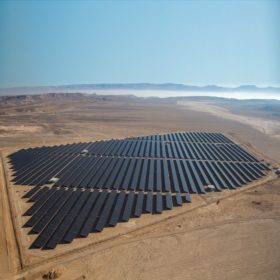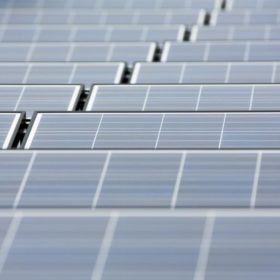Interview: Array Technologies’ new CEO; expanding and eyeing bifacial
U.S.-based tracker supplier Array Technologies took part in the panel discussion on bifacial technology at the Future PV Roundtable during Intersolar Europe last week. pv magazine caught up with panelist Caesar Alberte, VP International, to discuss the company’s new CEO and its work on bifacial tracking.
Researchers turn to spray coating in applying ETL to perovskites
Perovskites, a tempting low-cost alternative to crystalline silicon based solar cells, could be moving closer to commercial production thanks to a new way of applying the critical electron transport layer (ETL) pioneered by an international team of researchers.
Global PV module prices collapse
The predicted fall in global PV module prices appears to have already begun, with PVInsights and EnergyTrend reporting average prices in the $0.27-$0.37/W range.
The smarter E show: A wealth of innovations rewarded
At the smarter E-Intersolar Europe trade show this week, awards have been given to the technologies driving the energy transition to a low carbon future. Prizes include the Intersolar Award, recognizing PV technology; the EES prize for storage innovation; and the smarter E awards – one of which was given to an off-grid agricultural project in Australia.
Positive performance for Renesola continues into 2018
Developer has posted positive financial results for the second quarter running, following the company’s restructuring. Though its discontinued module manufacturing operations are not included in financial results for the first quarter, the company more than tripled net income on the previous three-month period.
Intersolar Europe: Could Chinese setback mean a European comeback?
While tariffs may inhibit India’s ability to benefit from anticipated record low Chinese panel prices, Japan already has a strong pipeline and two of the world’s solar pioneers – Spain and Italy – could be given a shot in the arm by new administrations.
Falling battery costs to push solar, wind to 50% electricity generation by 2050, but electricity still failing CO₂ reduction targets – BNEF
Solar PV capacity is set to grow 17-fold, and wind six-fold, by 2050, to account for nearly half of global electricity generation, predicts BNEF, while investments will reach US$11.5 trillion. Cost reductions will drive this charge, particularly in the battery market, which will benefit from the EV manufacturing ramp up. Despite this, the electricity sector is still failing to bring CO₂ emissions down to the required levels, with its continued dependence on gas.
Innogy to develop 440 MW solar pipeline in the US southeast
German-based Innogy SE’s US subsidiary will gain exclusive rights for the acquisition of 13 solar PV projects currently owned by Birdseye Renewable Energy LLC. The projects have a cumulative capacity of 440MW and are at various stages of development.
Court strikes down Canadian solar makers’ attempt to stay solar tariffs
Three manufacturers with Canadian module assembly have had no luck in trying to get a preliminary injunction against the Section 201 tariffs.
US could slap additional 25% tariffs on Chinese cells, modules
The new round of IT-related tariffs could make it more expensive for any manufacturers planning to import cells from China for module production in the United States.
